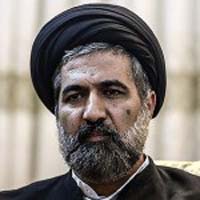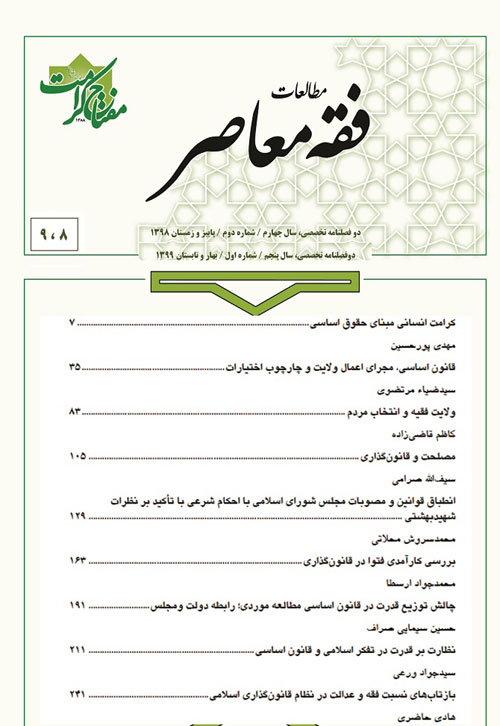Power Supervision in the Islamic Thought and the Constitution
This paper examines the issue of power supervision in the Islamic thought and the constitution of the Islamic Republic of Iran. In Islamic thought, by accepting the possibility of human revolt due to enjoying abundant power and wealth, the need for supervision is emphasized and to control those in power, internal and external measures have been devised. Infallibility in the Imam of the society in the age of appearance and justice of the ruler in the age of occultation are among the internal strategies to protect the nature of the government as a trust and prevent it from becoming a property. External supervision has been projected with measures such as "enacting the law based on public interests and obliging statesmen to the law", "public right and duty to enjoin what is good and forbid what is evil", "right to criticize" and "right to object" and "right to impeach and dismiss". In the constitution of the Islamic Republic of Iran, in order to prevent the deviation of the government and ensure its trustworthiness, these measures are included in various arrangements and numerous principles. A review of the 40-year performance of the Islamic Republic of Iran shows that the existing preparations are not enough and strengthening the supervision over government agents at various levels is considered as a necessity.
-
Human Dignity as the Foundation of the Right to Self-Determination
Sayyid Javad Raathi Varai *
Journal of Quran, Fiqh and Islamic Law, -
Peace and Peaceful Coexistence: the Basis of International Relations in the Holy Qurān
Seyyed Javad Varaei *
Journal of Contemporary Islamic Studies, Winter-Spring 2024



